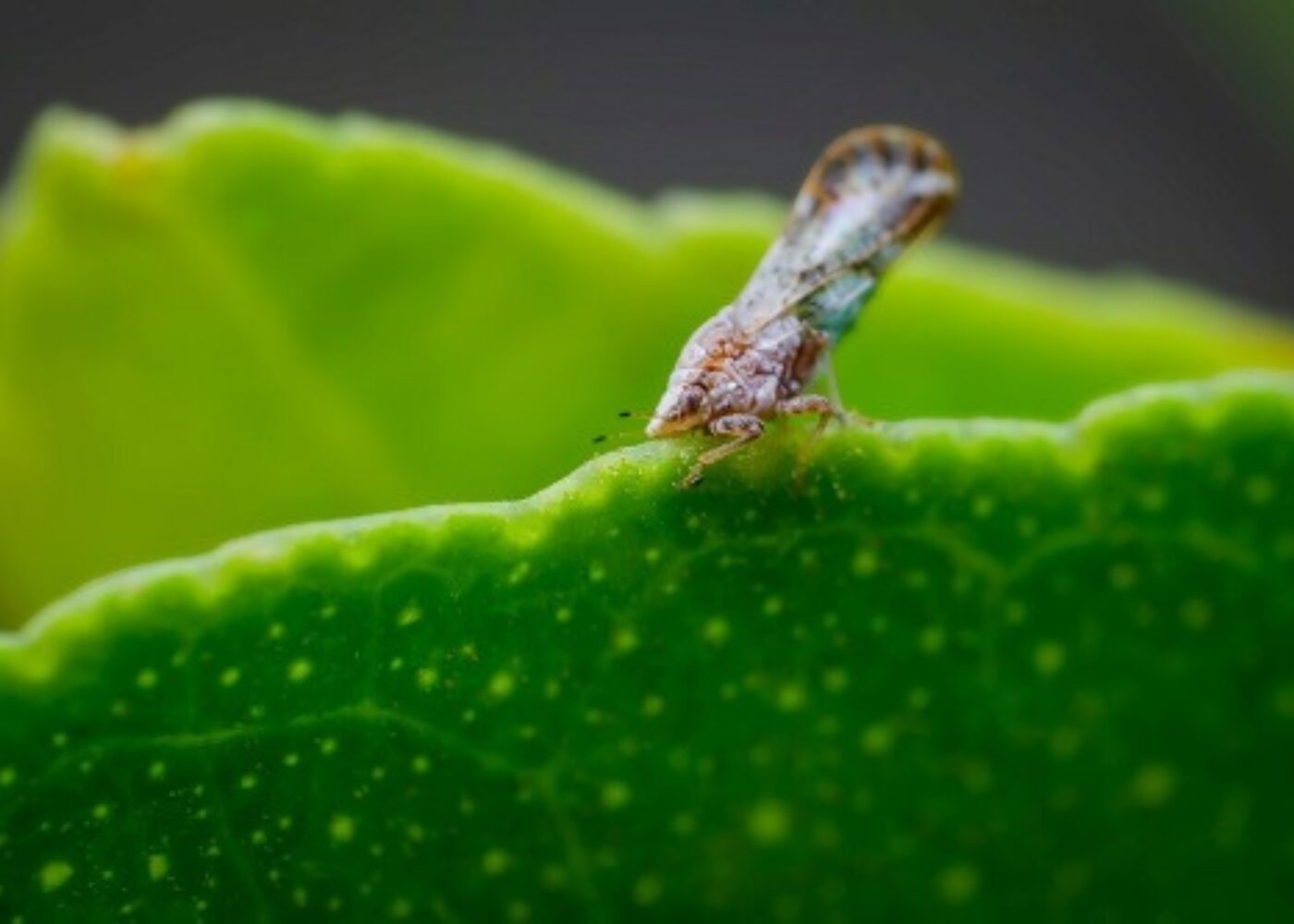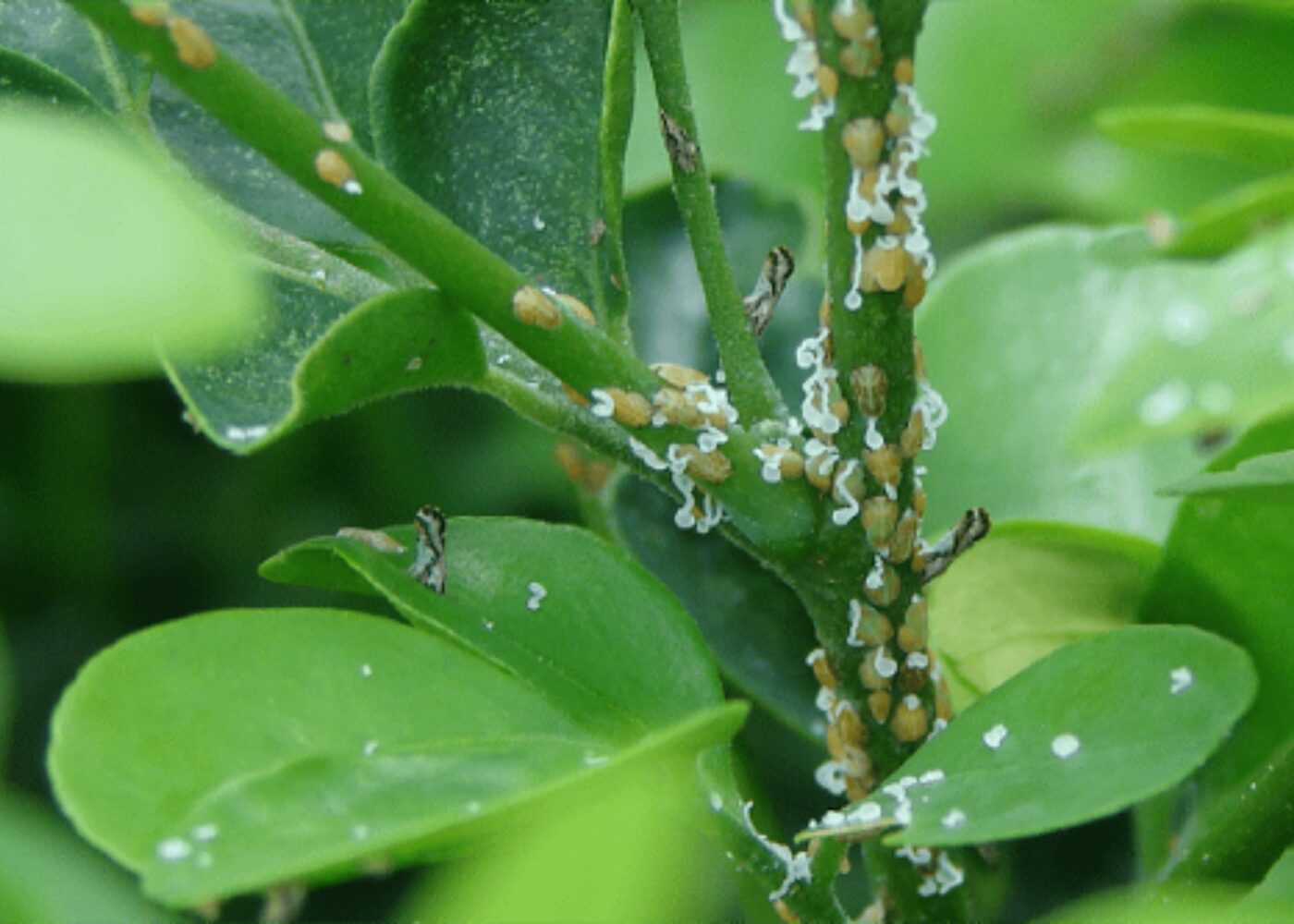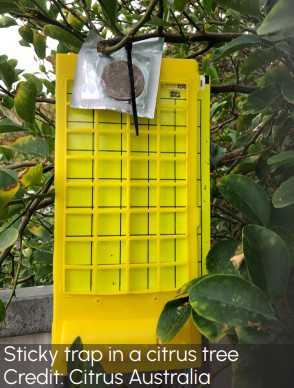Help to protect Australia’s citrus industry | host a sticky trap in your garden.
Do you have a citrus tree or mock orange (Murray paniculata) in your garden? Your tree could host an insect trap, helping to keep Austalian citrus safe, and adding crucial data to our national surveillance program.
CitrusWatch is a five-year program that aims to protect the Austrlian citrus industry. As part of CitrusWatch, we are conduting surveillance for exotic citrus pests. One of these is the Asian citrus psyllid (ACP). This insect is having a serious impact on overseas orchards, so we are keeping a constant look out for it.
Exotic pests such as ACP can travel to Australia via busy trade or passenger routes. If they evade border biosecurity, the next stop is often home gardens. Early detection of pests through program like CitrusWatch, improves the chances of a swift and successful response if an exotic pest is detected.
Program overview
In recognition of emerging global biosecurity threats to agriculture, the Australian citrus industry are investing in a national biosecurity program, CitrusWatch, which will run until 2026.
CitrusWatch is a collaborative, national program aimed at protecting Australian Citrus by improving industry preparedness for key exotic pest threats. From commercial citrus production zones to high-density urban landscapes, the program links government agencies, research programs, community groups, and citrus businesses through surveillance, research, training and education.
A collaboration between Plant Health Australia, Citrus Australia, the Northern Territory Department of Industry Tourism and Trade, and Cesar Australia, the program supports a volunteer-based, exotic pest early detector network both within the citrus industry and throughout the general public, and provides access to training on the topics of biosecurity, exotic pest surveillance and identification.
The program aims to ensure that the Australian citrus industry is better equipped to minimise the entry and spread of high priority pests, such as Asian citrus psyllid, African citrus psyllid and diseases such as huánglóngbìng.
CitrusWatch is funded through Hort Innovation, using the citrus research and development levy and contributions from the Australian Government. Hort Innovation is the grower owned, not-for-profit research and development corporation for Australian horticulture. Funding is also supplied by Plant Health Australia using the citrus plant health levy.
To learn more visit CitrusWatch


Want to get involved?

Citrus Watch is looking for volunteers to pplace a sticky insect trap in a tree, and contribute to an early warning system for our community citrus industry.
All you need to do is place the provided trap in a ACP host plant (citrus, curry leaf or Murray paniculata work well) and leave it in place for two weeks. After that, it’s a simple case of removing the trap and putting it in the post for checking by entomologists in Darwin. We’ll provide everything you need including sticky traps, instructions and pre-paid envelopes for trap return.
For more information and to register
Contact Ben Burchett, Department of Industry, Tourism and Trade, plantbiosecurity@nt.gov.au
or click here to volunteer today
CitrusWatch has been funded by Hort Innovation, using the citrus research and development levy and contribution from the Australian Government. Hort Innovation is the grower owner, not-for-profit and development corporation for Australian horticulture. Funding is also supplied by Plant Health Australia using the citrus plant health levy.
